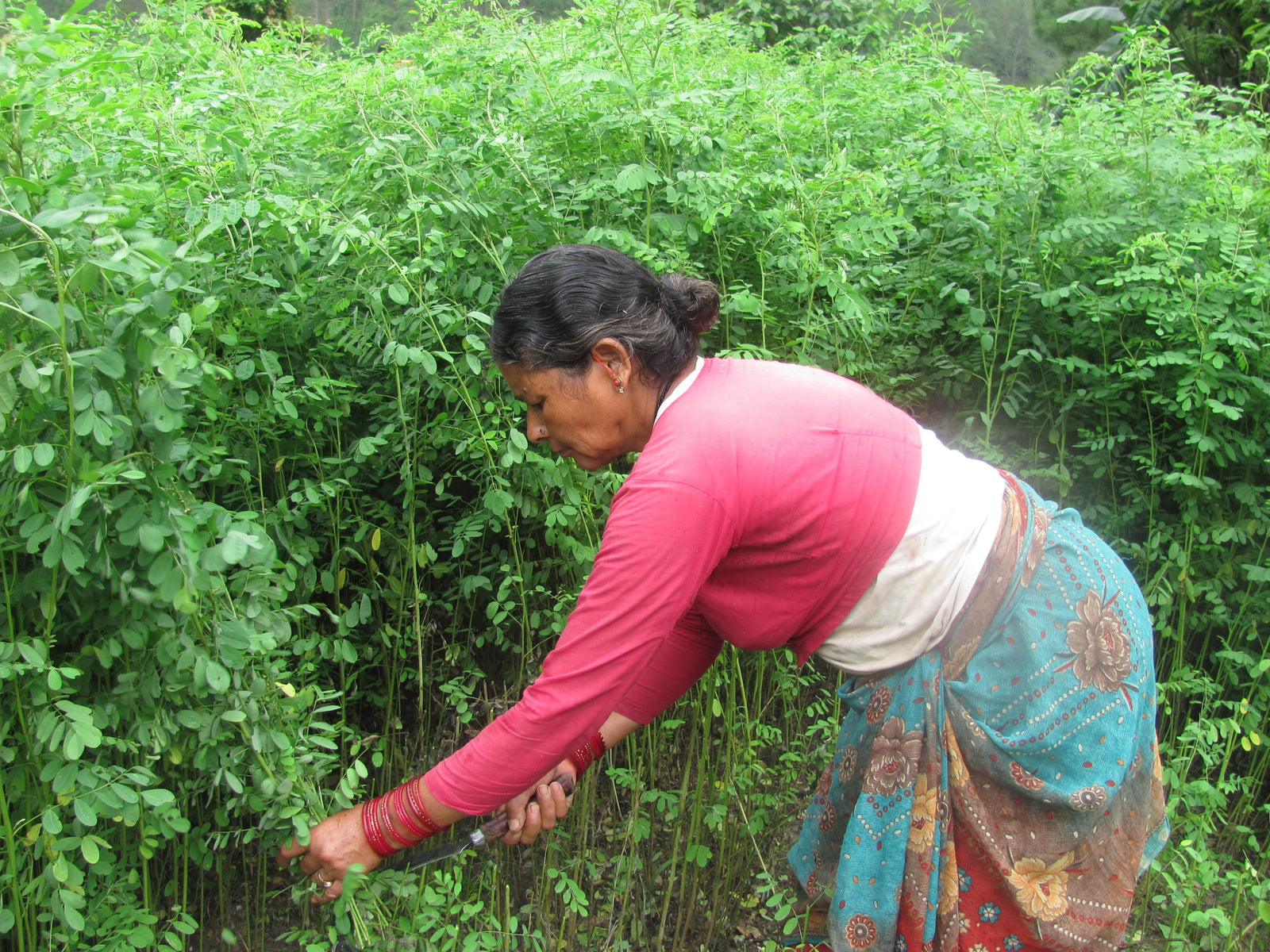Shipments from India to the US via international express mail have resumed with "delivery duty paid." We will cover the US tariff costs and keep our 2025 prices the same through the end of this year. Prices will increase in 2026 to cover the costs of US tariffs.
Shipments from India to the US via international express mail have resumed with "delivery duty paid." We will cover the US tariff costs and keep our 2025 prices the same through the end of this year. Prices will increase in 2026 to cover the costs of US tariffs.
A column with no settings can be used as a spacer
Link to your collections, sales and even external links
Add up to five columns
A column with no settings can be used as a spacer
Link to your collections, sales and even external links
Add up to five columns
Trusting the Power of Community
May 14, 2022

This article first appeared in Impact Entrepreneur Magazine.
As part of a series of “fireside chats” sponsored by R.I.S.E. Artisan Fund, Kythzia Barrera and Rashmi Bharti spoke about the artisan-owned collective enterprises that they founded and continue to build, Colectivo 1050° and Earthcraft Self-Reliant Cooperative. Both founders define success in terms that put local stakeholders first. Rashmi Bharti spoke from Tripuradevi, in the mountain region of northern India. Barrera joined the conversation from Oaxaca, in the highlands of southern Mexico.
In the Mountain Region of Northern India
Rashmi Bharti is co-founder of Avani, an NGO that creates rural livelihoods in remote villages of the Kumaon region through revival of the traditional crafts of hand-spinning, hand-weaving and natural dyeing, as well as the development and dissemination of appropriate technology and farming. Avani began working with weavers in 1997 and spun out Earthcraft Self-Reliant Cooperative in 2005 with 49 members after nearly a decade of community outreach and enterprise development.
Avani develops integrated, local supply chains for silk and wool as well as natural dyes, creating demand for locally produced materials and employing farmers, dyers, spinners and weavers in creating its textiles. In 2005, Avani began working with farmers to rear silk worms and in 2015 started introducing the cultivation of high-altitude indigo, a first for the region. Today, more than 200 farmers provide these raw materials to Earthcraft, which now has more than 500 members.
In addition to its award-winning textiles, the enterprise produces high-quality natural dyes and art supplies as well as soapnut powder for natural laundry detergent. Operating with a deep respect for the environment, Avani collects rainwater and recycles wastewater, while the sun and locally-gathered pine needles provide energy for the NGO campus, field centers and the Earthcraft enterprise.
“We are bringing the entire supply chain to the village,” Bharti explained. But she reminds us that the process of creating conservation-based livelihoods requires investment — it’s easy for industries to talk about low cost when they pretend costs such as water pollution or carbon emissions do not exist. Avani raised catalytic capital from the full spectrum of funding sources, to develop a sustainable local economy.
Referring to the practical solutions promoted by Avani, Bharti posed a rhetorical question: “What is the point of technology that nobody uses and it’s sitting in workshops and research papers?” The best initiatives, she said, are not those that are perfect or those that use the most advanced technology, but those that work well enough and are widely adopted. By that measure Avani is clearly succeeding, as its practical initiatives have improved the lives of 2,200 families in 64 villages. Bharti said that Avani can, with appropriate investment, nearly double the number of families it impacts.
Avani’s original trainees have been working with the enterprise for over 20 years, and are now training others. Bharti has observed profound impacts of the program. For instance, local girls empowered as skilled artisans now marry who they want, when they want, rather than being obliged to marry at a very young age.
In the Highlands of Southern Mexico
Kythzia Barrera nodded enthusiastically as Bharti described Avani’s comprehensive stakeholder approach. Barrera is co-founder of Innovando la Tradición, a nonprofit that operates in rural Mexico, which launched Colectivo 1050º as a cooperative enterprise of Mexican potters.
When Innovando la Tradición began working with potters in Oaxaca, the organization confronted deep-rooted bias against ancient crafts. Young people perceived little benefit in continuing the pottery tradition, as viable markets had dried up years earlier. Handmade goods had been replaced by cheap, mass-produced plastic, often imported from Asian countries. Young people fled the villages physically and emotionally, according to Barrera. “Everybody just wanted to go work in the U.S. and come back with their L.A. cap, their jeans and tennis shoes,” she said.
Barrera co-founded the cooperative Colectivo 1050° to bring the “beauty of the millenarian tradition of Mexican ceramics” to contemporary national and international markets. Colectivo 1050º potters create simple and elegant ceramics that draw on this ancient cultural heritage.
A participatory design process has been part of Barrera’s approach from the beginning: “We create social and participatory design in a solidarity economy – supporting and sharing with one another – because we seek cultural development, as well as a personal and community transformation, through the wisdom of our trade.”
Like Avani, Innovando la Tradición raised catalytic capital to create the team and organizational culture needed for the enterprise to take root. The artisans of Colectivo 1050° produce ceramic homeware from clay and natural slips found in the nearby hills of each community. Handmade with ancient methods but attractive to modern consumers, the new products revitalized a craft tradition that might otherwise have disappeared entirely.
Colectivo 1050° has been operating successfully since 2008. Today it has 19 members representing more than 50 potters from seven different communities in three states each with its own techniques, language and territories.
Plans for Growth & Institutes of Knowledge
While focused on sustainability, Barrera and Bharti also have big plans for growth. Each is raising capital to scale enterprises and lines of business that have already proven successful, and to expand educational programs.
Avani is expanding its already very robust educational programming to create an “Institute of Color” focused on natural dyes and serving as a repository of knowledge about color.
Innovando la Tradición is developing the Casa de Los Saberes (House of Knowledge) in Oaxaca, with an educational program and archive to ensure knowledge of traditional techniques does not die with village elders. They are raising $750,000 to fund construction and operating costs, with the longer-term vision of building seven satellite schools in the potters’ communities.
Investors in these enterprises will have tremendous impact on these communities and their cultural heritage, and, as Barrera says, will “fully trust the power of community.” Hopefully, they will also share these co-founders’ long term commitments to these rural communities and their dreams for future generations. Not only are Barrera and Bharti providing sustainable livelihoods today, they are laying the groundwork for ancient crafts that outlasted past empires to continue for decades and perhaps even for millennia.
Impact Opportunities
To learn more about these R.I.S.E. Artisan Fund impact opportunities:
The R.I.S.E. Artisan Fund invests in early-stage artisan enterprises creating sustainable livelihoods for rural communities with few economic alternatives. The fund deploys capital using a range of investment vehicles from grants to revenue-based equity investments while seeking a return of capital for further investment, thus creating a reinvestment cycle that multiplies the catalytic impact of philanthropic capital.
To invest via the R.I.S.E. Artisan Fund, you can make a tax-deductible contribution directly or via a grant from your donor advised fund (DAF). You can also co-invest directly in select investment opportunities. Contact ellen@sproutenterprise.net for more information or complete our Philanthropic Investment Grant Form to invest in the fund.
